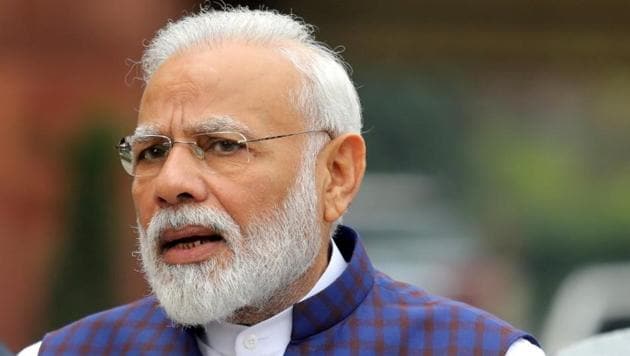
What Should One do to Stand for Election?
Engaging in the electoral process serves as a fundamental means for individuals to exert their influence in molding the destiny of their localities and nations. Regardless of whether you boast a wealth of political news experience or are venturing into candidacy for the very first time, a firm grasp of the procedural intricacies of running for office stands as indispensable. This all-encompassing manual is designed to lead you through the labyrinth of requisites and hurdles confronting aspiring public figures as they step into the realm of politics. For those in pursuit of global updates, the latest news happenings, or a deep dive into the realm of politics, this article offers invaluable perspectives into the realm of electoral decision-making.

Read more.. Innovative Business Idea Concepts That Will Redefine Industries
Section 1: The Desire to Make a Difference
1.1. Passion for Change:
- Many individuals considering standing for election are driven by a passion for change.
- The desire to address pressing issues or make improvements in society fuels their political news aspirations.
1.2. Commitment to Public Service:
- A strong commitment to serving the public and contributing to the greater good is fundamental.
- Understanding the responsibilities and duties of a public servant is essential for anyone considering political office.
1.3. Effective Leadership:
- Effective leadership skills are paramount to inspire and guide constituents.
- Aspiring candidates should possess qualities such as integrity, transparency, and the ability to bring people together.
 Read more.. Russia’s 2024 Presidential Election: the Future Political Landscape
Read more.. Russia’s 2024 Presidential Election: the Future Political Landscape
Section 2: Choose the Right Office
2.1. Understand Available Positions:
- Before standing for election, candidates must have a clear understanding of available political positions.
- These may include local, regional, national, or even international news roles.
2.2. Alignment with Goals:
- Candidates should assess how the chosen office aligns with their goals and vision.
- The office’s responsibilities should be in harmony with the changes they wish to bring about.
 Read more.. So When is the Next Federal Australia Election?
Read more.. So When is the Next Federal Australia Election?
Section 3: Political Affiliation
3.1. Party or Independent Candidacy:
- Candidates can stand for election as members of political parties or run as independents.
- Joining a party offers support and resources, while independent candidates maintain autonomy.
3.2. Party Selection Process:
- If joining a party, candidates may need to undergo a selection process.
- This may involve party primaries, nominations, or endorsements.
Section 4: Eligibility and Legal Requirements
4.1. Age and Citizenship:
- Each country has specific age and citizenship requirements for political office.
- Candidates must ensure they meet these criteria to stand for election.
4.2. Residency:
- Residency requirements may vary based on the office’s jurisdiction.
- Candidates must verify their eligibility before pursuing a candidacy.
4.3. Financial Disclosures:
- Some offices may require candidates to disclose financial information.
- This ensures transparency and helps prevent conflicts of interest.

Read more.. Russia’s 2024 Presidential Election: the Future Political Landscape
Section 5: Gather Support
5.1. Assemble a Campaign Team:
- Candidates need a dedicated campaign team to handle various tasks.
- This includes campaign management, communications, fundraising, and event coordination.
5.2. Fundraising:
- Financing a campaign is a critical aspect of standing for election.
- Candidates can raise funds through donations, events, and even personal contributions.
Section 6: Prepare a Platform
6.1. Identify Key Issues:
- Candidates should identify and prioritize the key issues they intend to address.
- Having a well-defined platform helps convey their vision to voters.
6.2. Develop Policy Proposals:
- To stand for election, candidates must create policy proposals and solutions.
- These proposals should be comprehensive and address the needs of their constituents.
Section 7: Navigating the Campaign
7.1. Campaign Strategy:
- Develop a comprehensive campaign strategy that includes outreach, messaging, and event planning.
- Engaging with constituents and addressing their concerns is vital.
7.2. Engage with Voters:
- Personal engagement with voters is a powerful way to earn their trust.
- Town halls, debates, and community events provide opportunities for direct interaction.
Section 8: Legalities and Ethics
8.1. Compliance with Election Laws:
- Candidates must adhere to election laws and regulations.
- This includes campaign finance laws, advertising guidelines, and reporting requirements.
8.2. Ethical Conduct:
- Upholding ethical conduct and integrity is essential when standing for election.
- Transparency and honesty with constituents build trust.
Section 9: Win the Election
9.1. Election Day:
- Election day involves campaigning for votes and encouraging constituents to cast their ballots.
- Candidates must ensure they have a strong voter turnout operation.
9.2. Acceptance and Transition:
- After winning the election, candidates should graciously accept the results.
- The transition to office involves thorough preparation and planning.
Section 10: Serve and Represent
10.1. Fulfilling Campaign Promises: – To gain the trust of constituents, candidates must work diligently to fulfill their campaign promises. – This involves collaboration with other elected officials and stakeholders.
10.2. Constituent Engagement: – Engaging with constituents, holding regular meetings, and addressing concerns is part of the role. – Effective representation involves staying connected with those who elected you.
Conclusion:
Running for office represents a courageous and influential stride towards effecting change in your local area, broader region, or even your entire nation. Whether you’re captivated by global affairs, current events, or political updates, comprehending the process of entering the political arena is essential for a well-rounded understanding. By adhering to the principles and insights presented in this comprehensive manual, budding politicians can commence a rewarding and influential voyage into the realm of public service.



